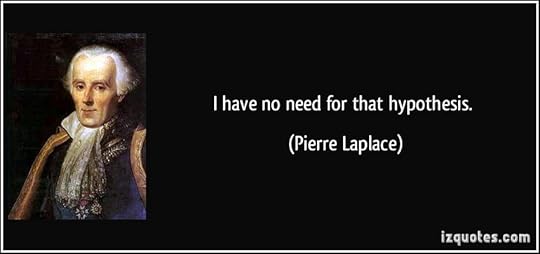Willpower? What willpower?
Willpower, willpower, willpower… give me a break. It doesn’t even exist.
Why do I not believe that willpower exists?
Intuitively, it might feel obvious that we have willpower. What else is causing me to write this when I could be sleeping or cutting a sandwich or reading a book? What will make me go to the gym later? To not drink alcohol this evening? But just because willpower feels like it must exist doesn’t mean it actually does. Just because it feels like the sun must revolve around the earth doesn’t mean that’s how it works. Just because you can’t see microbes doesn’t mean you should stop taking that medicine when you get sick. Pretty much the entire sum of our knowledge is based on things our intuition gets wrong. The existence of willpower comes into that bag.
Some people, I know, find it hard to just say: ‘I don’t know.’ Not me. I say it all the time. It’s because it’s true. But to say: ‘I don’t know’ and not follow up immediately with an attempt to guess… that’s the real biggie. That goes against all human nature. Any theory feels better, as in more comforting, than none at all. There’s the great scary (maybe) void of nothing, and there’s the comfort of telling ourselves well, this might be right, this might be how it works, rapidly transformed into: ‘Well that is definitely how it works.’
Hence the origins of religion in the Bronze Age, the infancy of the human race, when the wisest men and women knew less about the rules of science than any current three-year-old. Willpower is one of these handy, and outdated, placeholder concepts that people have used to explain systems they don’t understand, with the bonus of being considered personably desirable and rather flattering.
Just about every discussion of willpower I’ve come across involves food in its examples, so let’s not become startlingly innovative. I’ll stick with food.
I want to eat that muffin because it will taste delicious.
I don’t want to eat that muffin because it will encourage a weight gain.
Which do I want most? That is the one I will do, as with just about everything else, and this goes for all of us. I ain’t so special. Whatever decision I make I could, strictly speaking, label as a consequence of willpower. BUT… I know the one that will end up labelled as willpower.
If I decide to eat the muffin that will readily be labelled as giving in (not by me).
If I decide to not eat the muffin that will readily be labelled as an example of willpower. I would argue it is no more the result of willpower than making the other choice. It’s just doing what I want to do most, as usual, but congratulating myself about it. For ‘willpower’ is not an impartial term, but value-weighed, a pat-on-the-back label we attach to others and ourselves when we imagine some commendable decision has been arrived at and carried out. The fallacious concept of willpower can play no real part in decision making.
Napoleon… let’s bring Nap into it. He calls on the mathematician Pierre-Simon Laplace to have demonstrated to him his explanation and model of the workings of the cosmos. When he’s done Nap asked: ‘But where does God come into this? and Laplace replies, rather famously: ‘I have no need for that hypothesis.’
There’s no need for the hypothesis, and that is all it is, of willpower. Why not be honest? Let’s hear it for doing what we really want to do most anyway, just as we always do.




